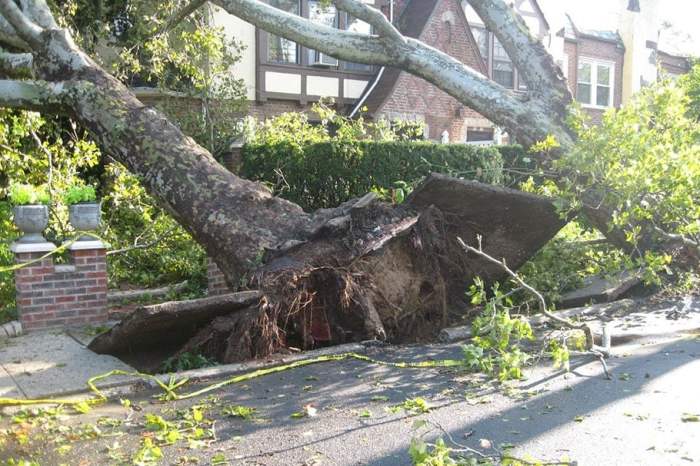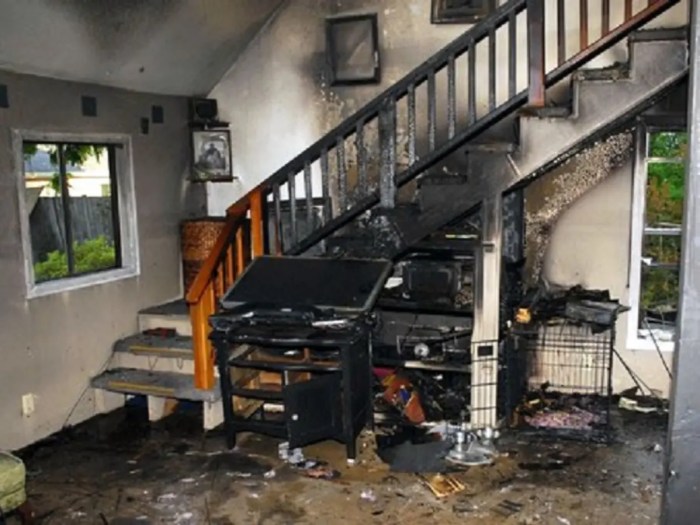Neighbors trampoline damaged my house – As the contentious issue of neighbors’ trampolines damaging houses takes center stage, this comprehensive guide delves into the legal responsibilities, insurance coverage, safety measures, neighborly communication, and alternative recreational options surrounding this topic. With meticulous attention to detail and authoritative analysis, we provide homeowners with the knowledge and strategies to navigate this complex landscape.
Trampolines, while offering a thrilling recreational activity, can pose significant risks to property and safety. Understanding the legal implications, insurance coverage, and safety precautions associated with trampolines is crucial for homeowners to protect their interests and maintain harmonious relationships with their neighbors.
Liability Assessment: Neighbors Trampoline Damaged My House
Trampoline accidents can result in significant property damage to neighboring homes. Legal liability in such cases is complex and depends on various factors, including the age and condition of the trampoline, the supervision provided, and the location of the trampoline.
Legal Responsibilities of Trampoline Owners
Trampoline owners have a legal duty to take reasonable steps to prevent injuries and damage. This includes ensuring that the trampoline is in good condition, properly installed, and used under appropriate supervision. Failure to do so may result in liability for any resulting injuries or damage.
Legal Recourse for Homeowners, Neighbors trampoline damaged my house
Homeowners who have suffered property damage due to a trampoline accident may have legal recourse against the trampoline owner. This may include filing a negligence lawsuit or seeking compensation through insurance.
Concept of Negligence
Negligence is a legal concept that refers to the failure to take reasonable care to prevent harm. In the context of trampoline accidents, negligence may be established if the trampoline owner failed to properly maintain the trampoline, provide adequate supervision, or take other reasonable steps to prevent the accident.
Insurance Coverage

Insurance policies may provide coverage for trampoline-related damage. Homeowners insurance policies typically cover damage to the home and its contents, while liability insurance policies may cover the legal costs associated with a negligence lawsuit.
Types of Insurance Policies
- Homeowners insurance
- Liability insurance
- Umbrella insurance
Coverage Limitations and Exclusions
Insurance policies may have limitations and exclusions that apply to trampoline-related damage. For example, some policies may exclude coverage for accidents that occur while the trampoline is being used by unsupervised minors.
Filing Insurance Claims and Negotiating Settlements
Homeowners who have suffered trampoline-related damage should contact their insurance company promptly to file a claim. It is important to provide detailed documentation of the damage and any injuries sustained. An experienced insurance attorney can help homeowners negotiate a fair settlement with the insurance company.
Homeowner Safety Measures

Homeowners can take several steps to minimize the risk of trampoline accidents and property damage.
Safety Precautions
- Place the trampoline on a level, stable surface.
- Inspect the trampoline regularly for damage.
- Provide adequate supervision when children are using the trampoline.
- Limit the number of people using the trampoline at one time.
- Use a safety net and padding around the trampoline.
Neighborly Communication

Open and respectful communication between neighbors is essential for resolving disputes related to trampoline accidents. Homeowners should make an effort to communicate with their neighbors about the use of the trampoline and any potential concerns.
Resolving Disputes Amicably
In the event of a dispute, homeowners should try to resolve the matter amicably. This may involve discussing the issue directly with the neighbor or seeking mediation from a third party.
Fostering Positive Relationships
Despite potential conflicts, homeowners should strive to foster positive relationships with their neighbors. This can help to prevent disputes from escalating and can create a more harmonious neighborhood.
Alternative Recreational Options
Trampolines are not the only option for outdoor recreation. There are several alternative activities that can provide similar enjoyment without the potential risks of trampolines.
Exploring Alternative Activities
- Organized sports
- Recreational programs
- Backyard games
- Nature walks
- Arts and crafts
Comparing Options
| Activity | Safety | Cost | Space Requirements |
|---|---|---|---|
| Trampoline | Low | Moderate | Large |
| Organized sports | Moderate | High | Large |
| Recreational programs | Moderate | Moderate | Variable |
| Backyard games | High | Low | Small |
| Nature walks | High | Low | Variable |
| Arts and crafts | High | Variable | Small |
FAQ Summary
What are the legal responsibilities of trampoline owners?
Trampoline owners have a legal duty to ensure the safety of individuals using their trampolines. This includes taking reasonable steps to prevent accidents and injuries, such as providing adequate supervision, maintaining the trampoline in good condition, and setting clear safety rules.
What types of insurance policies may cover trampoline-related damage?
Homeowners insurance policies typically provide coverage for trampoline-related damage to the homeowner’s property. However, it is important to note that coverage may vary depending on the specific policy and the circumstances of the incident.
What safety precautions can homeowners take to minimize the risk of trampoline accidents?
Homeowners can take several safety precautions to minimize the risk of trampoline accidents, including placing the trampoline on a level surface, using safety nets and enclosures, and providing proper supervision when children are using the trampoline.
How can homeowners resolve disputes with neighbors over trampoline damage amicably?
Homeowners should prioritize open and respectful communication with their neighbors to resolve disputes amicably. This may involve discussing safety concerns, agreeing on trampoline usage rules, and seeking mediation or legal advice if necessary.
What alternative recreational options can provide similar enjoyment without the potential risks of trampolines?
There are numerous alternative recreational options that can provide similar enjoyment without the potential risks of trampolines, such as organized sports, gymnastics, or visiting trampoline parks with trained supervision.